2024 awardees

Constraining the impacts of snowfall and storm events on the coupled Antarctic sea ice and ocean state
Ethan C. Campbell
University of Washington
Award #: 2420300
The floating sea ice surrounding Antarctica is intricately connected to Earth's climate system, and its decline in recent years may be related to the release of ocean heat. This project will synthesize ocean and satellite measurements as well as modeling experiments to explore how processes related to snowfall and storm events can impact heat fluxes within the ice-covered Southern Ocean and the future trajectory of Antarctic sea ice.
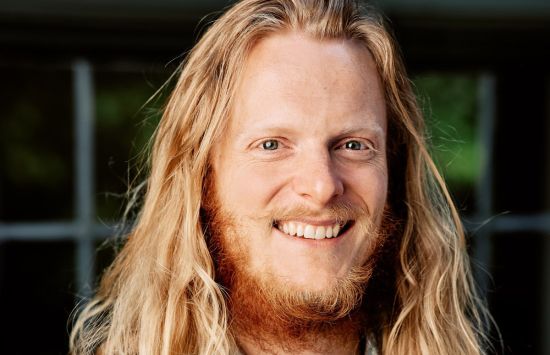
Mapping Antarctic geodiversity: Assessing people, place, and abiotic nature in the McMurdo Dry Valleys
Stephen Chignell
University of Oregon
Award #: 2420219
Stephen Chignell's research will use an interdisciplinary and mixed-method approach to map geodiversity in the McMurdo dry valleys of East Antarctica, identify key geosystem services and target priority locations for future research and conservation.
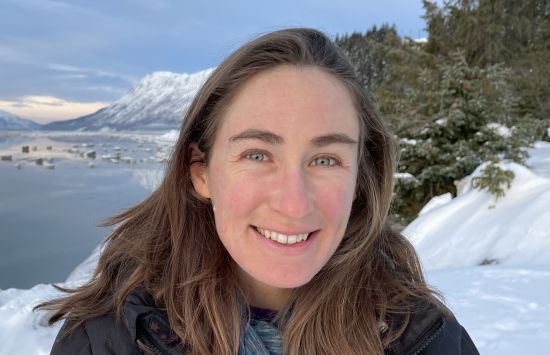
Oceanographic drivers of nearshore and landfast sea ice seasonal transitions
Laura Crews
University of Alaska Fairbanks
Award #: 2420059
Landfast sea ice, which typically forms and breaks up every year along Arctic coasts, is used by people living in Alaska coastal communities for hunting and travel. This research will study how the ocean affects landfast sea ice in order to improve ice forecasting, including better predictions of rapid ice breakup events.
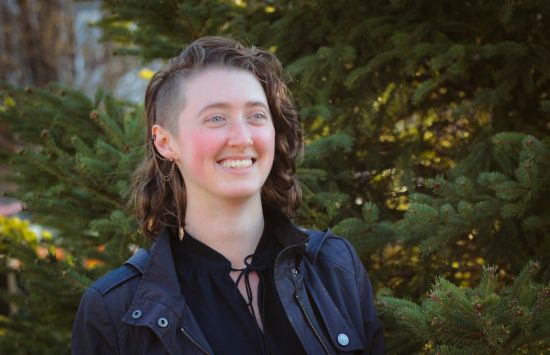
Revealing the drivers of Arctic cloud regimes and their surface impacts
Kara Hartig
University of Colorado Boulder
Award #: 2420081
Clouds can dramatically increase the amount of energy absorbed by the underlying land, ocean or sea ice in the Arctic, but only if they have the right combination of liquid water, temperature and longevity. As we don't fully understand what conditions lead to these crucial properties, Kara Hartig is teasing out how upwind conditions lead to downwind cloud properties and how they influence warming temperatures and shrinking sea ice.
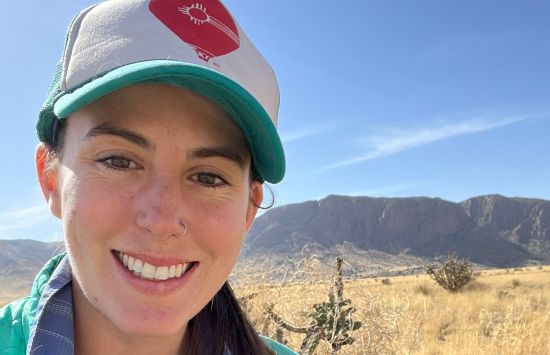
Finding a future using the past: Woodland caribou ecology in a changing Arctic
Carson Hedberg
Brown University
Award #: 2420298
Caribou are an ecologically and culturally important species in polar ecosystems, yet they are experiencing population declines throughout much of their circumpolar range due to climate change. Carson Hedberg's research will reconstruct woodland caribou diets and responses to environmental change across the Holocene using ancient DNA preserved in the Yukon Ice Patches. The results of this work will broaden our understanding of caribou ecology and inform conservation strategies in the face of modern climate change.
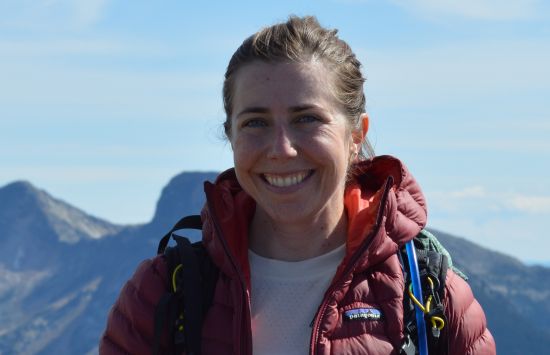
Constraining Heinrich event provenance using a data-assimilated iceberg model
Danielle LeBlanc
Woods Hole Oceanographic Institution
Award #: 2420274
Danielle LeBlanc is a paleoclimatologist interested in reconstructing past ice sheet and ocean dynamics. This project will use a novel data-assimilated iceberg modeling tool to investigate how North Atlantic ice sheets destabilized in the past.
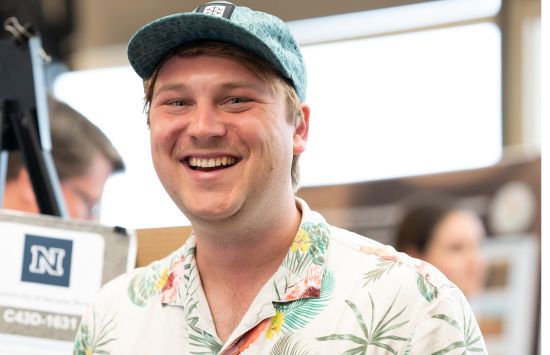
Constraining potential impacts of brine firn aquifers on Antarctic ice shelf stability using airborne ice-penetrating radar
Ian McDowell
Cornell University
Award #: 2419987
Ian McDowell studies water movement within the porous near-surface of ice sheets and ice shelves. This project will utilize airborne radar data to map the spatial extent and volume of seawater infiltration into ice shelves surrounding Antarctica. Knowledge of the structure, water content and total extent of these seawater aquifer systems will help to constrain their impacts on ice shelf stability.

Remote pathways of ocean heat transport toward the Antarctic ice sheet
Channing Prend
University of Washington
Award #: 2420258
Channing Prend is an oceanographer interested in ice-ocean interactions in the Antarctic. This project will use climate model output and observations from autonomous floats to investigate pathways of ocean heat transport toward the Antarctic ice sheet. Quantifying these pathways is crucial to predicting future ice sheet mass loss and the global sea level rise.

Investigating the geophysical signatures of partial melt in deforming icy systems
Cassandra Seltzer
Columbia University
Award #: 2420207
As the Earth warms, glacial melt will increase, but the effects of small meltwater inclusions on the movement and eventual loss of glacial ice are not yet understood. This experimental project will use laboratory deformation methods to define how meltwater increases the rate of ice flow, and will make geophysical predictions that may allow us to track movement in glacial and ice sheet interiors.
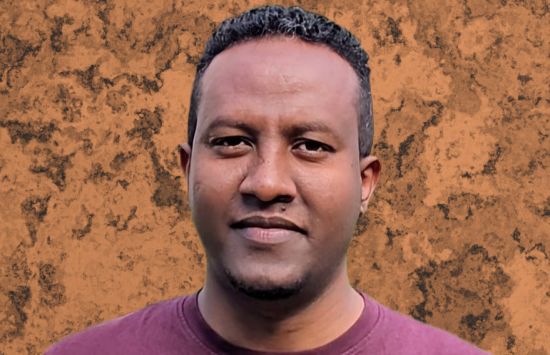
A novel method for high-resolution chemical imaging and dating of old ice cores using laser ablation inductively coupled plasma mass spectrometry
Mebrahtu Weldeghebriel
Princeton University
Award #: 2420291
Scientists have found the oldest ice on Earth, over a million years old, in Antarctica's blue ice areas. This ice helps us learn about Earth's climate when it was warmer and had more carbon dioxide, similar to today's climate. This research focuses on developing a novel analytical technique using cryo-cell laser ablation inductively coupled plasma mass spectrometry to uncover the complex history preserved in these ancient ice cores, including ice core layer analysis and orientation, as well as dating ice cores using trapped sea salts.
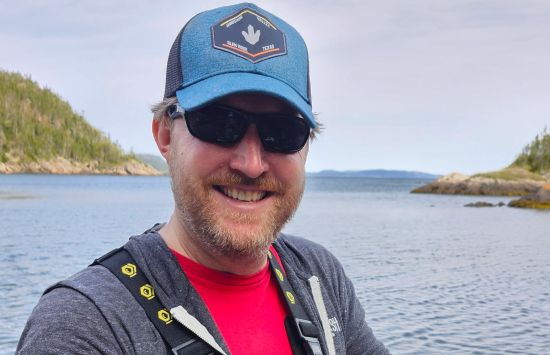
Genetic mechanisms of renal adaptations and antifreeze-induced kidney plasticity in high latitude cods
Daniel Wright
University of Houston
Award #: 2420167
Cod have adapted to polar environments in part by producing antifreeze proteins that protect their tissues from freezing during the polar winters. Daniel Wright's research investigates the role the kidney plays in retaining these valuable antifreeze proteins through the seasonal disruption and recovery of kidney filtration in cod and seeks to identify the cell types and genetic mechanisms responsible for seasonal changes to kidney function.
2023 awardees
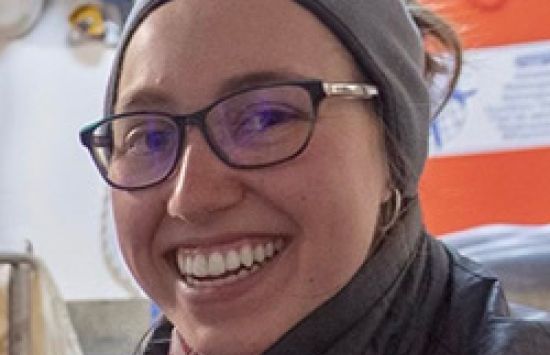
Leveraging community structure data and machine learning techniques to improve microbial functional diversity in an Arctic Ocean ecosystem model
Emelia Chamberlain
Woods Hole Oceanographic Institution
Award #: 2317681
Bacteria are abundant and active in nearly all components of the polar oceans, playing key roles in the food web, nutrient cycling and ecological function. This research will employ recent genomic field observations and machine learning techniques to improve the representation of bacterial diversity in numerical models, allowing us to better predict the impact of specific microbes on ecological processes, such as carbon cycling, in the Arctic Ocean.
Emelia Chamberlain is a microbial ecologist and oceanographer who studies the microscopic life that thrives at the polar extremes of our planet. Her post-doctoral research will employ recent genomic field observations and machine learning techniques to improve the representation of bacterial diversity in numerical models, allowing researchers to better predict the impact of specific microbes on ecological processes, such as carbon cycling, in the Arctic Ocean.
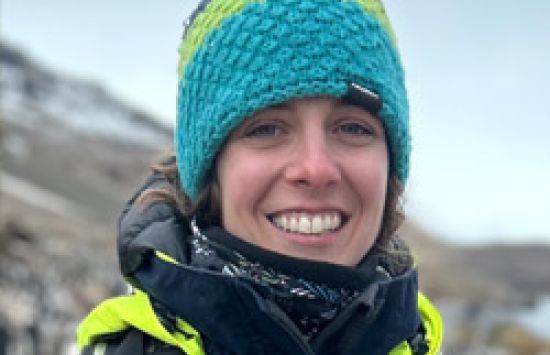
Epigenetic potential as a driver of local adaptation in gentoo penguins (Pygoscelis papua) along the Western Antarctic Peninsula
Rachel Herman
State University of New York at Stony Brook
Award #: 2317995
Rachel Herman researches Antarctic penguins and how they respond to climate change using a combination of population genetics and ecological modeling. She is currently investigating the presence of epigenetic variation among gentoo penguins (Pygoscelis papua) on the Western Antarctic Peninsula, and whether this provides phenotypic resiliency to novel environments, allowing them to expand their range further south.
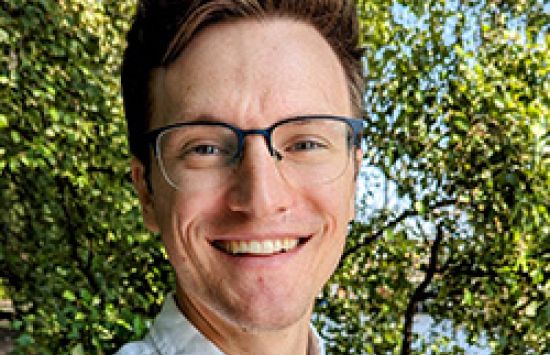
Disentangling ice-sheet internal and basal processes through novel ice-penetrating radar integration built on scalable, cloud-based infrastructure
Benjamin Hills
Colorado School of Mines
Award #: 2317927
Benjamin Hills studies the fluid behavior of glacier ice. He primarily uses ice-penetrating radar as a tool to decipher past and present flow as well as to infer the solid and fluid properties of glaciers and ice sheets.

Spatiotemporal evolution of firn hydrology on the Juneau Icefield, Alaska
Annika Horlings
University of Colorado, Boulder
Award #: 2318348
Annika Horlings is a glaciologist interested in near-surface processes that are important in estimating mass loss or gain of alpine glaciers and ice sheets. This project will assess properties of and meltwater flow through the firn (the material through which snow densifies into glacier ice) of Alaska's Juneau Icefield and will improve our understanding of Alaskan glaciers' influence on sea-level rise, regional water resources and downstream ecology.
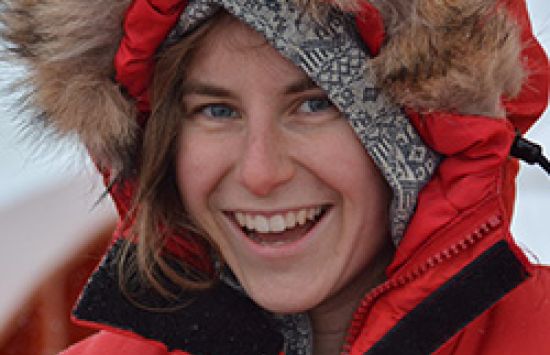
Deciphering the role of phytoplankton community composition in Southern Ocean carbon fluxes
Hannah Joy-Warren
University of Washington
Award #: 2317998
The Southern Ocean mediates global climate through carbon cycling. While the physical processes involved are relatively well understood, the biological processes controlling carbon cycling are not well constrained. Hannah Joy-Warren's work seeks to quantify the roles of different phytoplankton taxa in carbon cycling in the Southern Ocean.
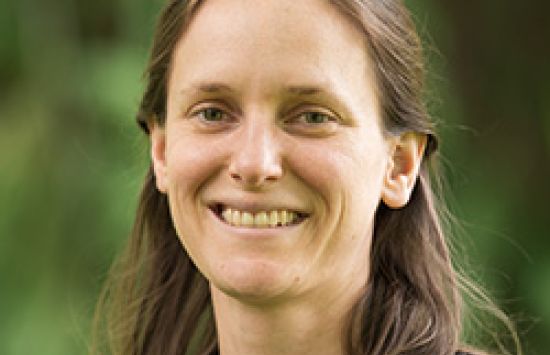
Tracing polar sediments with short-lived radioisotopes in 75 years of Arctic and Antarctic sediment cores
Molly Keogh
Oregon State University
Award #: 2317997
Molly Keogh studies the movement of water and sediment in coastal environments. By analyzing radioisotopes in Arctic and Antarctic sediment cores, this research will help us understand how climate change is impacting patterns of sediment erosion and deposition in polar environments.
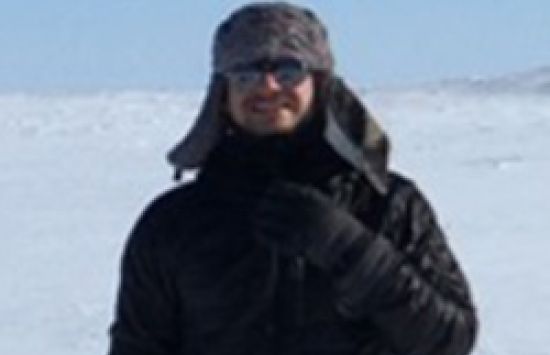
Assessing the contribution of permafrost-derived trace gases in greenhouse warming since the Last Glacial Maximum
Samuel Mark
University of Alaska, Fairbanks
Award #: 2317931
Samuel Mark is interested in climate and environmental changes which take place over long timescales. His current research involves tracing past episodes of permafrost thaw which took place during the Earth's emergence from the last ice age.
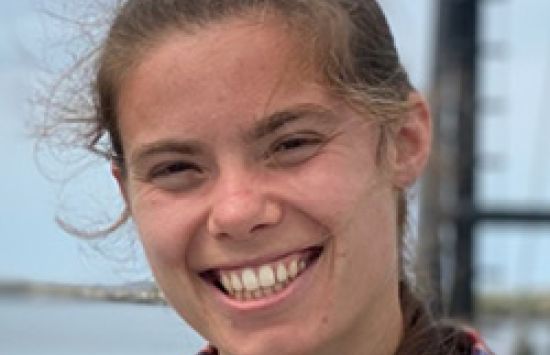
Understanding the role of specific iron-binding organic ligands in governing iron biogeochemistry in the Southern Ocean
Laura Moore
Oregon State University
Award #: 2317664
Laura Moore will study the effects of diverse iron-binding molecules on the fate and supply of dissolved iron in the Southern Ocean. She then will further explore the potential for these molecules to govern the bioavailability of scarce iron resources in the local microbial community.
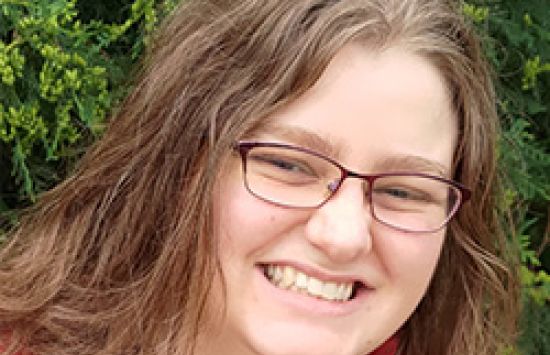
Investigating polar geomagnetic signatures associated with substorm onset to address data gaps in Southern Hemisphere space weather research
Michelle Salzano
Space Science Institute
Award #: 2317994
Substorms are a type of space weather event that occur daily and can lead to impacts on technology such as telecommunications satellites. In order to study these events, researchers rely on ground-based measurements. However, due to limited ground coverage in the Southern Hemisphere, the majority of research into substorms relies solely on Northern Hemisphere data. The purpose of this research is to investigate an alternative way to identify and research substorms using a related phenomenon called Pi1B waves, and to then determine if measurements of Pi1B waves could be used as a suitable proxy for identifying substorms in Southern Hemisphere data.
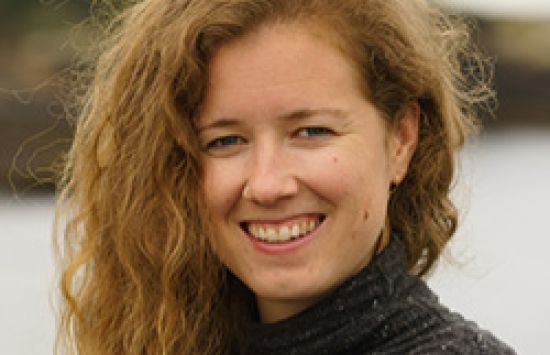
Exploration of how historical climate events impacted Pacific cod (Gadus macrocephalus) evolution and fishery use
Sara Schaal
University of Oklahoma
Award #: 2318914
Understanding how populations responded to environmental changes in the past can often help us predict how resilient they might be to future climate changes. By using ancient DNA samples of Pacific cod found in bones from middens (i.e., trash heaps from archeological sites) throughout Alaska, Sara Schaal will evaluate how this ecologically and economically important species evolved in response to two major climatic events of the past.
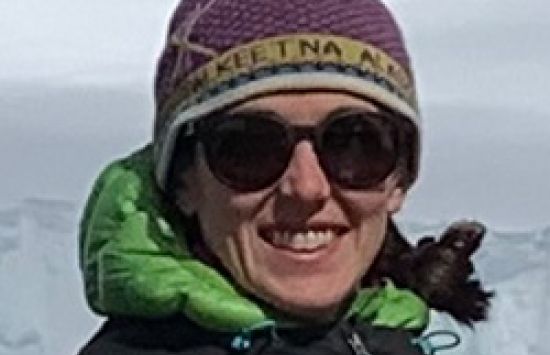
Linkages among sea ice, phytoplankton, and carbon in the marginal ice zone
Jessica Turner
University of Connecticut
Award #: 2317774
Jessica Turner's research focuses on the role of phytoplankton community composition in surface ocean carbon uptake in the West Antarctic Peninsula region of the Southern Ocean. Phytoplankton are microscopic plants that make up the base of the ocean food web, and the type of phytoplankton present can alter how much carbon uptake occurs and the quality of food available for higher trophic levels.
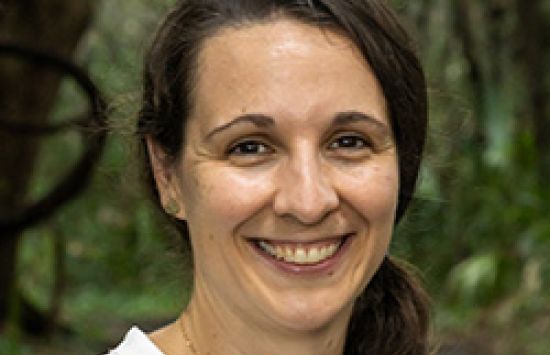
Long-term Arctic lake area change: reducing uncertainty and paving a new path forward
Elizabeth Webb
University of Oregon
Award #: 2317873
Elizabeth Webb will use data from satellites to study how climate change is affecting Arctic landscapes. This research will use satellite images to track changes in Arctic lake area over time.
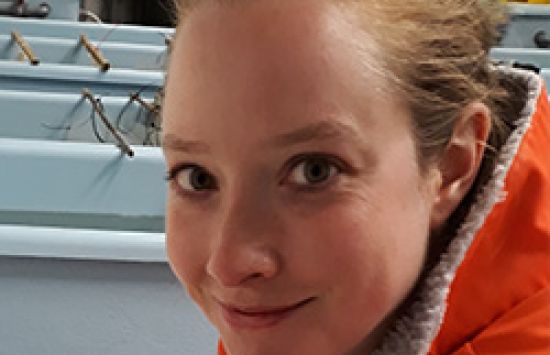
Identifying central and peripheral thermosensors in eurythermal and stenothermal Arctic fishes
Julia York
University of Illinois Urbana-Champaign
Award #: 2317970
Polar marine fishes are particularly vulnerable to climate warming, yet little is known about how fish sense temperature. This project aims to identify proteins that underlie temperature sensing in three key Arctic fish species that vary in their preferred temperature environment.
2022 awardees
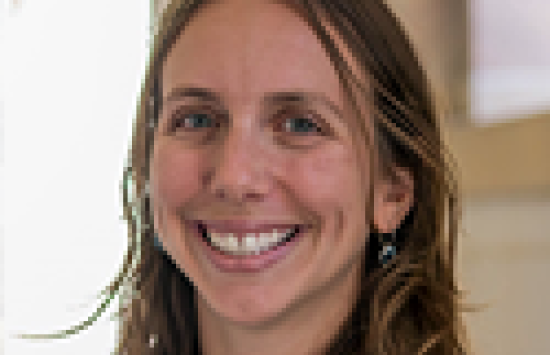
Exploring the role of a humpback whale cultural foraging innovation within the Antarctic ecosystem in the LTER study region
Jennifer Allen
University of California, Santa Cruz
Award #: 2218949
This research focuses on how Antarctic humpback whales learn different feeding strategies. This will help us to understand how whales may be responding to changes in their environment, such as those caused by climate change.

Conjugate experiment to explore magnetospheric phenomena via spatial sonification and mixed reality
Kristina Collins
Space Science Institute
Award #: 2218996
This research will look at data from Arctic and Antarctic magnetometers to determine whether disturbances in the Earth's magnetosphere (a region of near-Earth space dominated by the planet's magnetic field) caused by the sun impact the Northern Hemisphere, the Southern Hemisphere or both, and thus help researchers understand the sources of north-south hemisphere asymmetries.
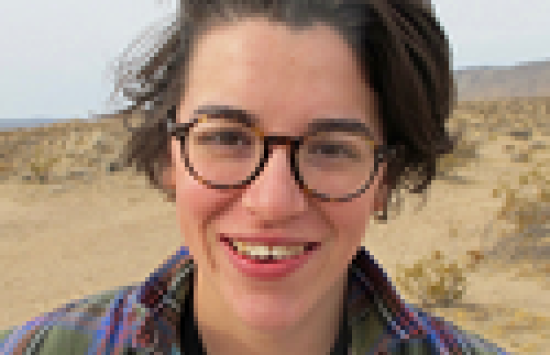
A well-constrained hosing experiment for interrogating Arctic precipitation changes in the Younger Dryas
Michaela Fendrock
University at Buffalo
Award #: 2219119
Michaela Fendrock is a paleoclimatologist interested in instances of abrupt climate change in Earth's past. She uses models to bridge the gap between geologic records and the climate signal that produced them. One specific interest that will be explored during her postdoctoral research is the response of Arctic precipitation to the abrupt addition of cold, fresh water to the North Atlantic during the last glacial period.
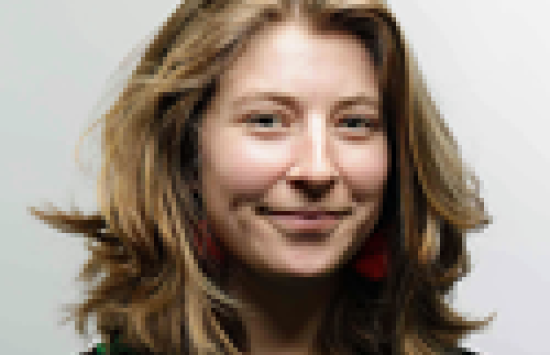
Investigating fire-biotic disturbance interactions and their sensitivity to climate in the North American boreal biome
Katherine Hayes
Cary Institute of Ecosystem Studies
Award #: 2219248
Katherine Hayes is a landscape and disturbance ecologist interested in how ecosystems change over space and time. Her research will explore how emerging pests and pathogens may interact with increasing fire to impact the community and carbon storage of Alaska's boreal forests.

The predictive capacity of ocean heat gain and autumn freeze up dates on seasonal sea ice extent from three reanalyses and the CESM2 Large Ensemble
Meghan Helmberger
Colorado State University
Award #: 2219266
This project focuses on improving sea ice extent predictability in the Arctic. Using freely available data, this research will use ocean heat patterns to assess how the timing of autumn sea ice freeze-up relates to seasonal predictability.
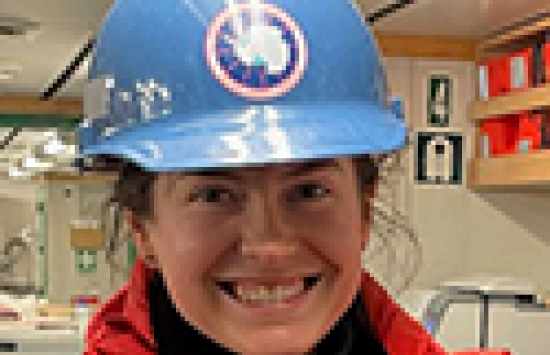
Benthic iron fluxes and cycling in the Amundsen Sea
Lisa Herbert
Rutgers University
Award #: 2212904
Lisa Herbert will analyze marine sediments to investigate whether nutrient iron seeping from the seabed fertilizes the highly productive ecosystem in the Amundsen Sea, Antarctica. Her results will help scientists understand the ecosystem's basic drivers and predict the effects of climate change on this vibrant, vulnerable region.

Millimeter-wave blazar monitoring with cosmic microwave background Experiments: A new tool for probing blazar physics
John Hood
University of Chicago
Award #: 2219065
John Hood will be using data from cosmic microwave background telescopes to monitor the variable brightness of active galaxies. The monitoring of active galaxies in this wavelength is a new endeavor, and combined with monitoring across multiple wavelengths can help researchers learn more about the inner workings of these sources.
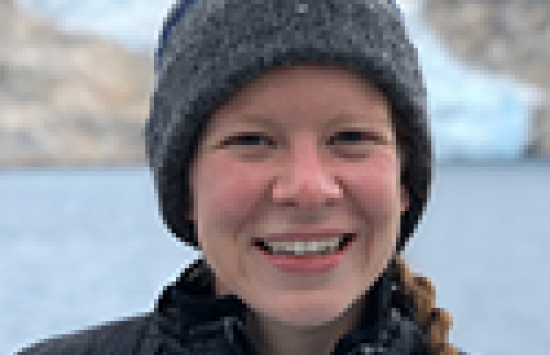
The Marginal ocean zone: Definition, dynamics, and implications for a changing Arctic Ocean through model-observation synthesis
Astrid Pacini
University of Washington
Award #: 2219147
As Arctic sea ice becomes increasingly seasonal, the physical processes that influence ocean dynamics and properties like temperature, salinity and stratification are changing. Astrid Pacini uses observations and models to understand ocean behavior near the ice edge across space and time scales.
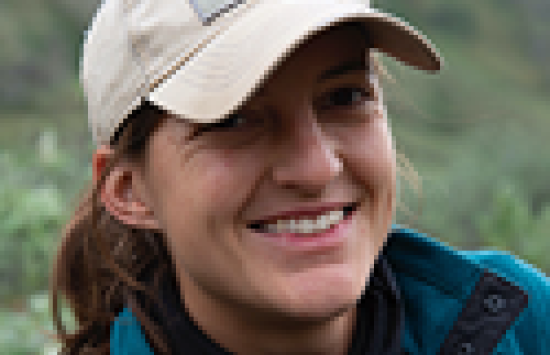
Linking the physical and chemical drivers of carbon cycling in Arctic source-to-sink systems
Marisa Repasch
University of Colorado, Boulder
Award #: 2219107
Increasing air temperatures in the Arctic can thaw out permafrost, which stores a massive amount of carbon — nearly twice as much as the atmosphere. The goals of this research project are to 1) find hotspots of permafrost thaw in the Arctic landscape, 2) understand what happens to carbon after it is released from thawed permafrost, and 3) determine how release of carbon from Arctic permafrost landscapes may affect global climate.
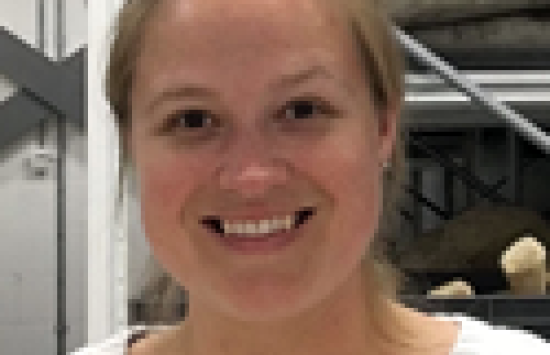
Reconstructing baleen whale movement and foraging ecology using archived natural history collections
Kerri Smith
University of Rhode Island
Award #: 2219243
Baleen whales play vital roles in polar marine ecosystem health, biodiversity and ecotourism; however, many aspects of their biology and ecology are unknown due to the difficulty of studying them at sea. This research will use archived natural history collections to reconstruct historical and modern migratory patterns of North Atlantic baleen whales and explore how this ecosystem has changed with increased human activity.

Demographic, epidemiologic, and social consequences of the 1918 influenza pandemic in Alaska
Taylor van Doren
University of Alaska, Anchorage
Award #: 2219216
Taylor van Doren is a biocultural anthropological pandemic researcher whose work investigates social inequalities, demography and population health as they pertain to pandemic events. Her postdoctoral research will explore the consequences of the 1918 influenza pandemic on population structure, culture and health in Alaska.
2021 awardees

Submesoscale fjord variability and its influence on glacial melt
Ken Zhao
Oregon State University
Award #: 2138790

Revealing the genomic underpinnings of polar bear physiological adaptations to the Arctic
Blair Perry
Washington State University
Award #: 2138649

Investigating 2.5k years of human history and atmospheric transport in Greenland ice using high-resolution lead isotopic records
Sophia Wensman
Nevada System of Higher Education, Desert Research Institute
Award #: 2138782
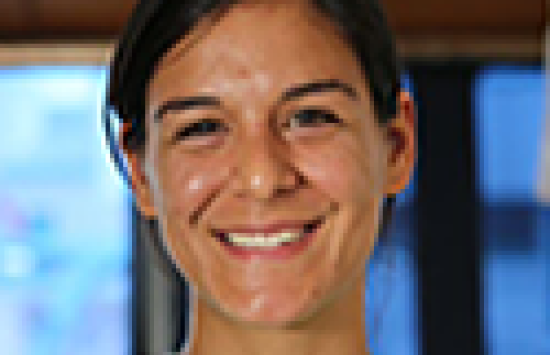
Investigating the influence of ocean temperature on Antarctic ice sheet evolution during the early to middle Pleistocene
Michelle Guitard
Lamont-Doherty Earth Observatory at Columbia University
Award #: 2139051
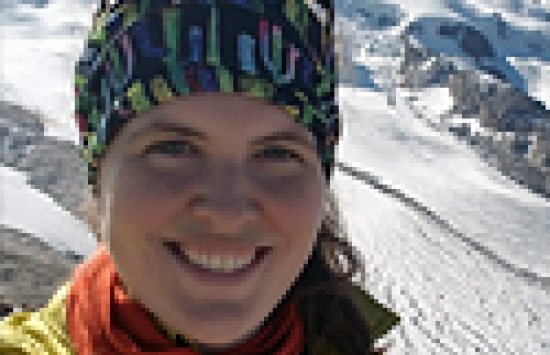
Freeze-thaw effect on biogeochemistry and nutrient cycling in Arctic soils
Erin Rooney
University of Tennessee Knoxville
Award #: 2138937

Assessing the relationship among fire, temperature, and precipitation in the Arctic during the Pleistocene
Emily Tibbett
University of Massachusetts Amherst
Award #: 2138893
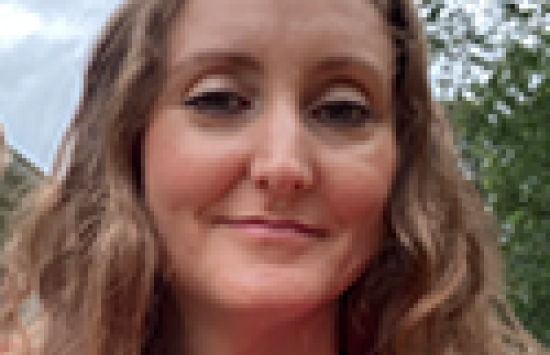
Investigating the effects of late Holocene climate change on polar bears
Lillian Parker
University of Oklahoma
Award #: 2139044
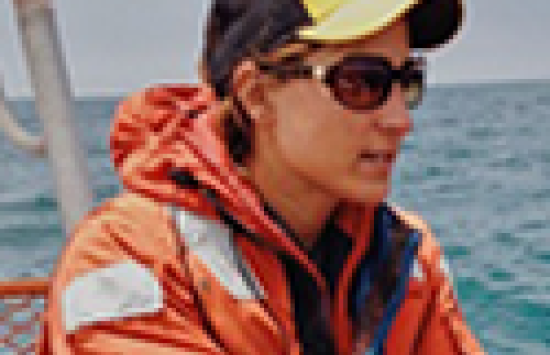
Using passive acoustic monitoring of bowhead whales to identify biotic and abiotic drivers and timing of migration
Angela Szesciorka
Oregon State University
Award #: 2138801

Calving, icebergs, and climate
Alexander Huth
Princeton University
Award #: 2139002

Organic matter export, processes, and transformations drive carbon cycling patterns in the Arctic Ocean
Jumanah Hamdi
Louisiana Universities Marine Corsortium
Award #: 2138584
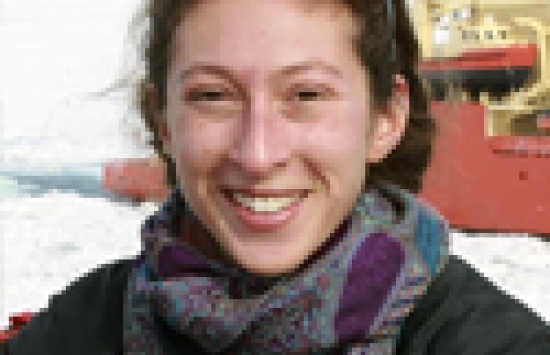
High-resolution nested Antarctic ice sheet modeling to reconcile marine and terrestrial geologic data
Anna Ruth Halberstadt
Berkeley Geochronology Center
Award #: 2138556

The role of Southern Ocean iron limited diatoms in modulating copper speciation
Angel Ruacho
University of Washington
Award #: 2138217
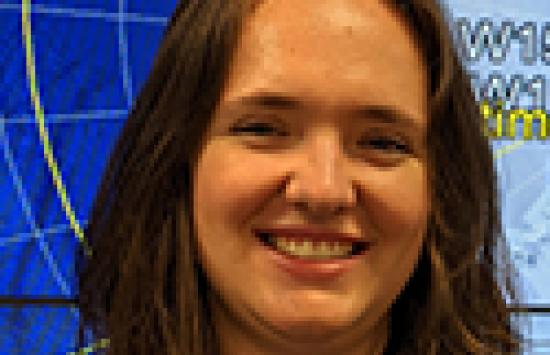
Pygoscelis penguin response to potential prey retention along the West Antarctic Peninsula
Katherine Hudson
State University of New York at Stony Brook
Award #: 2138277


